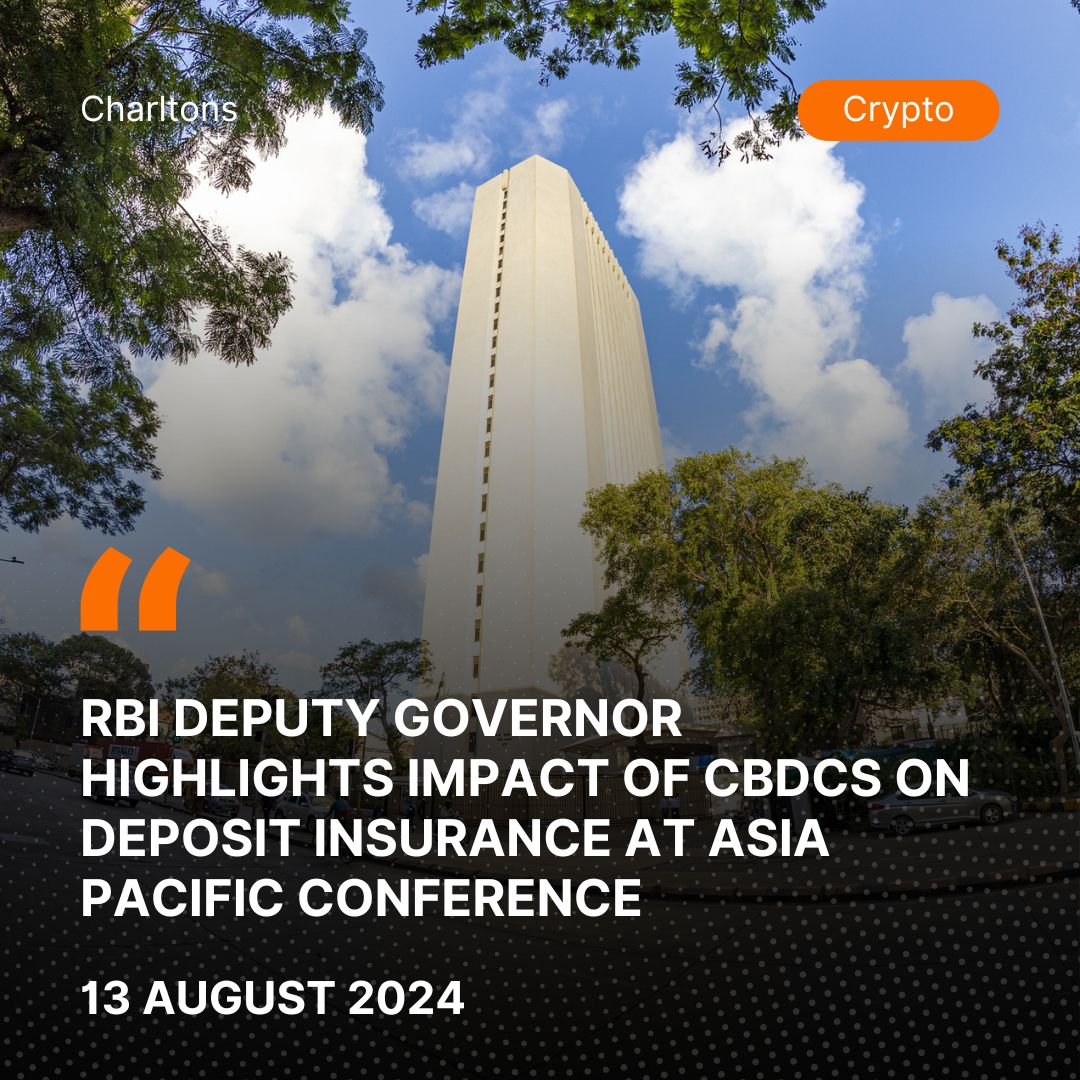
On August 13, 2024, in a compelling address at the International Association of Deposit Insurers (IADI) Asia Pacific Regional Committee (APRC) International Conference, Reserve Bank of India (RBI) Deputy Governor Michael Debabrata Patra highlighted the evolving challenges facing deposit insurers in an increasingly digital and climate-conscious world. Speaking at the conference hosted by the Deposit Insurance and Credit Guarantee Corporation (DICGC) in Jaipur, Patra emphasized the importance of fortifying crisis preparedness and the need for deposit insurers to stay ahead of emerging risks.
Patra began by acknowledging the rapid digitalization of financial services and the opportunities it presents for deposit insurers to enhance their efficiency and effectiveness. He noted that while digitalization offers significant economies of scale and modernization in reimbursement, supervision, and resolution, it also brings new risks. The experience of banking sector stress in 2023, where online banking and social media coordination accelerated deposit outflows, shows the potential for digitalization to amplify financial stability risks.
Central to Patra’s address was the impact of central bank digital currencies (CBDCs) on the financial system. He discussed the potential of CBDCs to serve as legal tender issued by central banks in digital form, offering benefits such as real-time transactions and cost-effective globalization of payment systems. However, Patra cautioned that the impact of CBDCs on traditional bank deposits and deposit insurance remains uncertain. He stressed the need for deposit insurers to closely monitor developments in CBDC adoption, particularly in the context of crises where CBDCs might be perceived as safer than traditional bank deposits, potentially triggering bank runs.
Patra also highlighted the ongoing revolution in the digital payments space, where instant payment systems (IPS) are transforming domestic and cross-border transactions. He noted that deposit insurers must re-evaluate operational risks posed by these 24/7 payment systems, especially in cases where depositors and member banks rely heavily on non-domestic depositors. The increasing cross-border banking activities underscore the importance of cooperation between deposit insurers and other financial safety net participants.
In discussing tokenized deposits, Patra pointed to the growing adoption of blockchain technology and its implications for deposit insurance. Tokenized deposits, which are digital representations of traditional bank deposits on a secure blockchain, offer benefits such as increased liquidity and cost-effectiveness. However, they also pose regulatory and financial stability challenges, including the potential to amplify bank runs during stress periods and the need for a robust legal framework to ensure tokenized deposits are treated as traditional deposits for insurance purposes.
Patra then turned his attention to the rising threat of climate change-related financial risks. He noted that 2023 was the warmest year on record, with 2024 likely to surpass it. The increasing frequency and severity of natural disasters are already impacting the balance sheets of banks and financial intermediaries, making it crucial for deposit insurers to prepare for the potential impact of climate change on the institutions they oversee. Patra called for the development of climate risk-based premiums, climate stress testing of funds, and the incorporation of sustainability into fund management, risk monitoring, and resolution plans.
In conclusion, Patra reflected on the challenges and opportunities facing deposit insurance in India. He highlighted India’s ongoing pilot programs for wholesale and retail CBDCs and the nation’s leadership in digital payments through initiatives like the Unified Payments Interface (UPI). Patra emphasized that these developments are defining milestones in the DICGC’s journey, as the corporation prioritizes risk management, digital transformation, and public awareness campaigns in response to emerging challenges.
(Source: https://rbi.org.in/scripts/BS_SpeechesView.aspx?Id=1452)





